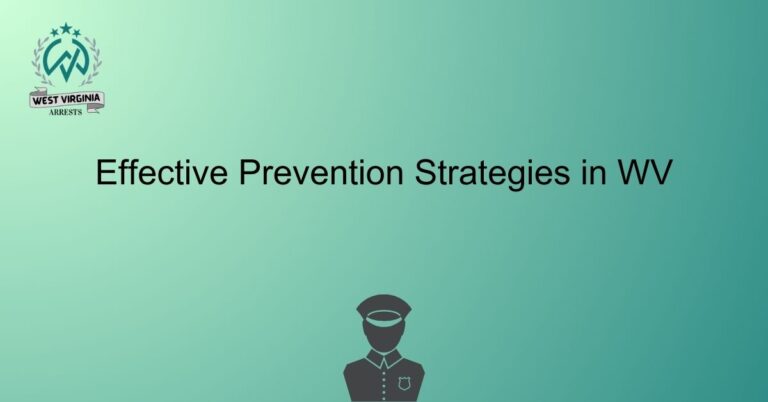Victimology Research in West Virginia
Research on victimology in West Virginia provides valuable insights into the various factors contributing to crime and its impact on individuals and communities. By studying the patterns of victimization and understanding the dynamics at play, researchers can uncover significant findings that help in the development of effective prevention and intervention strategies.
Through victimology research in West Virginia, a deeper understanding of the experiences and needs of victims emerges, shedding light on the challenges they face and the support they require. This research not only informs policy and practice but also raises awareness about the importance of addressing victimization to create safer and more resilient communities.
Factors contributing to crime in West Virginia
Crime in West Virginia is influenced by various factors, including socioeconomic disparities, substance abuse issues, and lack of access to mental health resources. These factors create an environment where individuals may resort to criminal behavior as a means of survival or coping with their circumstances. Understanding these underlying factors is crucial in developing effective prevention strategies to address the root causes of crime in the state.
Patterns of victimization in the state
Victimization patterns in West Virginia often reflect the broader societal issues mentioned earlier. Certain populations, such as low-income individuals, minorities, and women, are disproportionately affected by crime. It is essential to analyze these patterns to identify vulnerable groups and tailor interventions to meet their specific needs.
Impact of crime on individuals and communities
The impact of crime extends beyond the immediate victims to families, communities, and society as a whole. Victims often experience physical, emotional, and financial consequences that can have long-lasting effects. Communities may also suffer from decreased trust, increased fear, and a sense of insecurity. Addressing these impacts is crucial for promoting healing and preventing future victimization.
Development of prevention strategies based on findings
The development of prevention strategies is crucial for fostering safer environments. These strategies are shaped by insightful findings derived from community collaboration, enabling targeted interventions to mitigate risks effectively and promote overall well-being.
Understanding the experiences and needs of victims
Victimology research in West Virginia focuses on understanding the experiences and needs of victims to provide them with appropriate support and services. By listening to their stories and perspectives, researchers can develop interventions that address the specific challenges faced by victims in the state.
Challenges faced by victims in West Virginia
Victims of crime in West Virginia face various challenges, including stigma, lack of resources, and barriers to seeking help. These challenges can prevent victims from accessing the support they need to recover and heal from their experiences. Addressing these obstacles is essential for promoting victim well-being.
Support required for victims of crime
Victims of crime require comprehensive support services to address their physical, emotional, and financial needs. This support may include counseling, legal assistance, financial compensation, and referrals to other resources. Providing victims with the necessary support can help them rebuild their lives and move forward from the trauma they have experienced.
Policy and practice informed by victimology research
Victimology research in West Virginia informs policy and practice related to crime prevention, victim support, and criminal justice. By incorporating research findings into decision-making processes, policymakers can develop evidence-based strategies that effectively address the needs of victims and promote a safer community for all residents.
Frequently Asked Questions
Victimology Research in West Virginia is a crucial area of study that focuses on understanding the impact of crime on individuals and society. This FAQ section aims to provide detailed explanations on commonly asked questions related to victimology research in West Virginia.
What is Victimology Research?
Victimology research is a multidisciplinary field that examines the relationship between victims and offenders, as well as the impact of crime on individuals and communities. In West Virginia, victimology research plays a significant role in shaping policies and interventions to support victims of crime.
What are the key concepts in Victimology Research?
Key concepts in victimology research include victim blaming, victim precipitation, victim-offender overlap, and the victim-offender relationship. Understanding these concepts is essential for developing effective strategies to prevent and address victimization in West Virginia.
How does Victimology Research benefit society?
Victimology research helps to raise awareness about the needs and experiences of crime victims, inform policy decisions, improve victim services, and enhance the criminal justice system’s response to victimization. By studying victimology in West Virginia, researchers can identify trends, patterns, and risk factors associated with victimization.
What are the challenges of conducting Victimology Research in West Virginia?
Challenges in conducting victimology research in West Virginia may include obtaining access to data, ensuring the protection of participant confidentiality, overcoming biases in reporting, and addressing the complexity of victim experiences. Researchers must navigate these challenges to produce reliable and valid research findings.
How can individuals contribute to Victimology Research in West Virginia?
Individuals can contribute to victimology research in West Virginia by participating in surveys, interviews, or focus groups, sharing their experiences as crime victims or witnesses, supporting victim advocacy organizations, and staying informed about research findings and initiatives. By actively engaging in victimology research, individuals can help shape policies and practices that benefit victims and enhance community safety.
What are the future directions of Victimology Research in West Virginia?
The future of victimology research in West Virginia is likely to focus on emerging trends in crime and victimization, the impact of technology on victim experiences, the intersectionality of victim identities, and the effectiveness of interventions and support services. Continued collaboration between researchers, practitioners, policymakers, and communities will be essential for advancing victimology research and promoting victim well-being in West Virginia.







